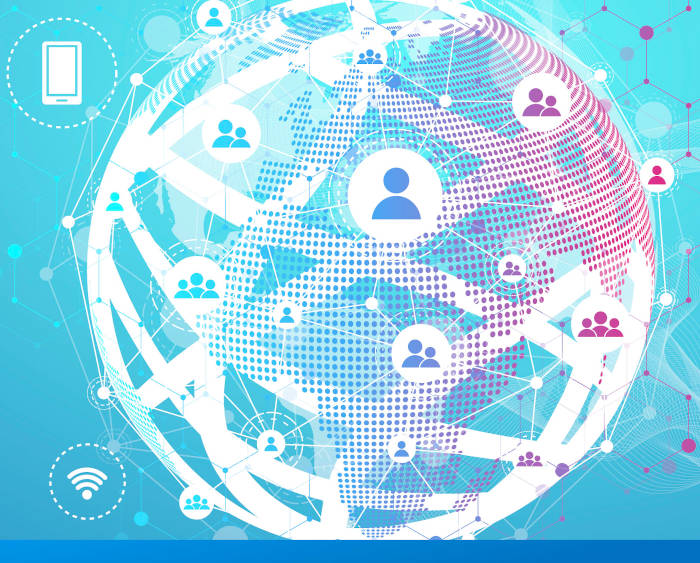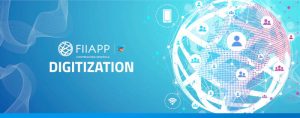-
07 October 2021
Category : Opinion
Digital and sustainable recovery: the commitment to fair digitisation
"The FIIAPP should constitute its vision of digitisation with a human approach, without digitisation being conceived as an end in itself, but as a lever for more and better help to citizens."

In the 21st century, digital technologies are profoundly changing societies, everyday life and working practices. All of this gained momentum as a response to the Coronavirus (Covid-19) crisis, which highlighted the need to increase the coordination of international efforts, both to take advantage of the benefits of the digital age and to manage any obstacles to obtaining them.
In this sense, the European Union has embarked on a path for a green, just and digital transition in such a way that the European Green Deal and the responses to the health crisis have been linked to sustainability and digitisation. The goal is to shape digital economies that put people first, protect the fundamental rights of citizens and offer equal opportunities to all. For its part, Spain has legislated to accelerate processes from the portfolios of the Ecological Transition and Digitisation and Artificial Intelligence.
The European Commission’s main response in the digital sector was the launch of the D4D Hub, (Digitisation for Development Hub), which ushered in a new era for global cooperation on digital development. The D4D Hub implements the “2030 Digital Compass: the European way for the Digital Decade” with a Digital4Development approach, this new vision aims to promote new international partnerships in the field of digital transformation such as #TeamEurope.
Spain is one of the 11 Member States that are part of the D4D Hub and the FIIAPP, as a public state Foundation for Spanish and European cooperation, has been an active member of the different Hub commissions during the last year. The D4D Hub brings together European Member States and implementing agencies, the EC, the European Investment Bank and European financial institutions, civil society organisations, academia and private sector partners. The Hub aims to establish strategic digital partnerships and promote joint investments between Europe and partner countries around the world that contribute to reducing digital divides, including the digital gender divide, ensuring a human rights-based approach to sustainable development.
Digitisation with a human approach
However, the FIIAPP should constitute its vision of digitisation with a human approach. That is to say, without digitisation being conceived as an end in itself, but as a lever for more and better help to citizens.” Digitisation will transform and increase our impact on the Sustainable Development Goals (SDGs)¹ and our actions in the projects in which we participate. Our main task will be to connect up the different actors in the sector to stimulate knowledge sharing and create innovative partnerships to “Put people first”. The D4D strategy must be in line with Spanish Cooperation and all its actors and in close cooperation with our international partners, the European Commission, other EU Member States, multilateral organisations, development banks, etc.
 Given that digitisation creates both opportunities and challenges that transcend borders, international cooperation is a key dimension to make the most of digital transformation at the local, national and international levels. At FIIAPP, we use digital tools and understand that they can provide States with new capabilities and make them more credible, inclusive, efficient and innovative. However, the digital transformation also brings risks for inclusive development, increasing disparities between and within countries, widening digital divides, the automation of jobs, and security and privacy concerns. Hence the importance of putting people first in the development of digitisation.
Given that digitisation creates both opportunities and challenges that transcend borders, international cooperation is a key dimension to make the most of digital transformation at the local, national and international levels. At FIIAPP, we use digital tools and understand that they can provide States with new capabilities and make them more credible, inclusive, efficient and innovative. However, the digital transformation also brings risks for inclusive development, increasing disparities between and within countries, widening digital divides, the automation of jobs, and security and privacy concerns. Hence the importance of putting people first in the development of digitisation. Digitisation can play an important role in all sectors in which FIIAPP operates. This includes health, education, agriculture and food security, basic infrastructures, water and sanitation, governance, social protection, financial services and others. It can also contribute to cross-cutting objectives on gender and the environment. Through the Economic Development and Environment area, a Digitisation Strategy is being built and is actively contributing to the constitution of the Latin America D4D Hub.
Let’s start this new digital and sustainable path by improving public systems for people and the planet.
Alba Rodríguez Díaz, Project Technician, Economic Development and Environment Area.
—
¹ The 2030 Agenda for Sustainable Development underlines the importance of information and communication technologies in developing countries as powerful facilitators of growth. Reference to ICTs can be found explicitly as a target in SDG 9 “Build resilient infrastructures, promote inclusive and sustainable industrialisation and foster innovation”, while ICTs are also mentioned in targets related to climate change (SDG 13 , 14 and 15), gender equality and the empowerment of women (SDG 5), private sector development (SDG 8), education (SDG 4) and health (SDG 3).
The views and opinions expressed in this blog are the sole responsibility of the person who write them.




